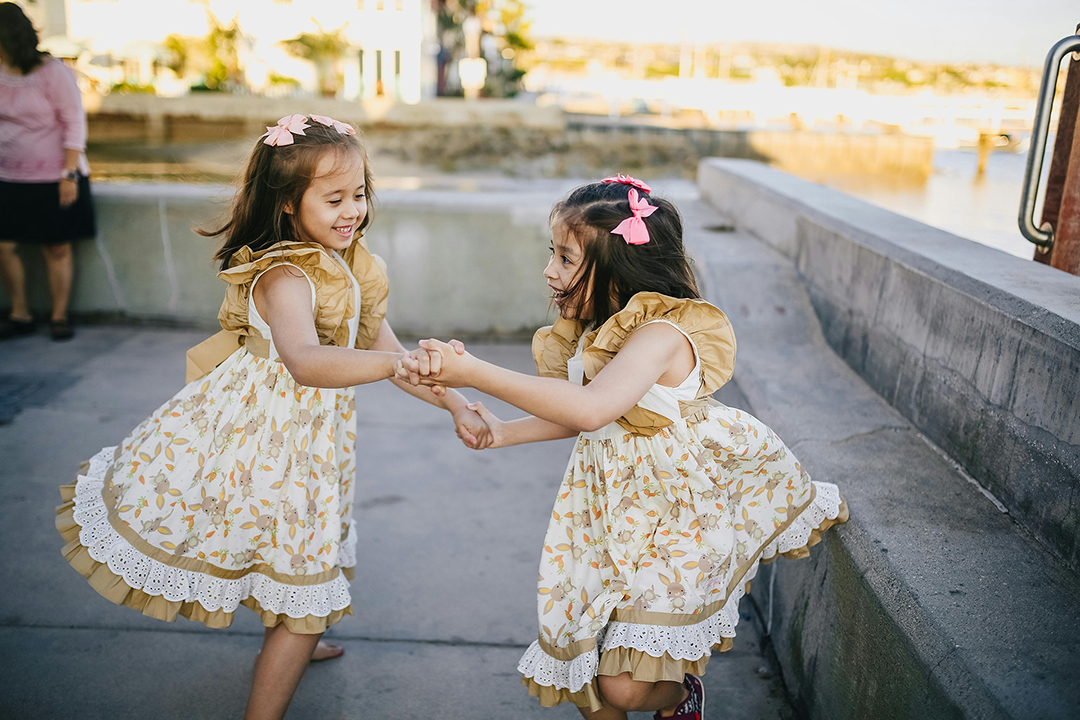Welcoming a new baby—or multiples such as twins and triplets—into the world brings immense joy and excitement. As you prepare for this life-changing event, one aspect often overlooked in the midst of setting up nurseries and buying baby gear is planning for your babies’ learning needs. From the very first days, babies are absorbing and learning from their environment, interactions, and caregivers. In this guide, we’ll explore how you can create an enriching and respectful learning environment for your newborns.
"Children are not things to be molded, but are people to be unfolded." — Jess Lair
1. Understanding Respectful Parenting

Respectful parenting, a concept rooted in the teachings of Magda Gerber, is about treating babies as capable individuals from the very beginning. It’s about trusting that even newborns are competent learners and can develop at their own pace when provided with the right environment. Respectful parenting fosters secure attachment, independence, and cognitive development, laying the foundation for lifelong learning.
When preparing for your babies’ learning journey, respect is key. This means recognizing their natural curiosity, allowing them to explore, and engaging with them in meaningful ways, rather than overwhelming them with constant stimulation or pressure to meet milestones.
2. Creating a Learning Environment

Your home will be your babies' first learning environment, and it’s important to design it thoughtfully. Here are some guidelines:
Simplicity is Key: Avoid overstimulating your babies with too many toys, sounds, or bright colors. A calm, organized space allows your children to focus on their surroundings and begin to explore at their own pace.
Accessible and Safe Space: Designate a safe play area where your babies can move freely. This could be a soft mat on the floor with a few simple toys within reach. As your babies grow, this space will become a place where they can independently explore and practice skills like grasping, crawling, and sitting up.
Open-Ended Toys: Choose toys that encourage imagination and exploration rather than flashy gadgets. Items like wooden blocks, cloth balls, and sensory books allow babies to engage with their senses and practice motor skills.
Read also: Setting Up for Success: What to Purchase (and Skip) for Your Babies’ Early Development
3. Observing and Trusting Your Babies’ Development

In respectful parenting, observing your babies without constantly interrupting their play or exploration is a key principle. Instead of trying to teach or guide every moment, let your babies lead. Watch how they engage with the world—whether it’s reaching for a toy or simply gazing at a moving object—and trust that they are learning and developing in their own time.
By observing, you’ll also learn more about their interests, preferences, and needs. You might notice that one baby is drawn to textures, while the other prefers to explore with sound. Respectful parenting is about meeting them where they are, rather than pushing them to fit into a specific mould.
4. Nurturing Curiosity through Responsive Interaction

Babies learn best through responsive interaction. This doesn’t mean overwhelming them with constant chatter or entertainment. Instead, engage mindfully. When your babies coo or babble, respond with eye contact, gentle words, and expressions of delight. Use simple language and label objects in their environment as they show interest, but let the flow of interaction be natural rather than forced.
As your babies grow, engage them in everyday tasks. For example, during diaper changes, explain what you’re doing step-by-step. Involve them in their own care by allowing them to watch or touch the objects you’re using. This builds not only trust but also their understanding of daily routines and their role within them.
5. Balancing Structure and Freedom

While it’s important to provide a structure (e.g., daily routines for feeding, naps, and play), balance it with freedom for your babies to explore at their own pace. Predictable routines give them a sense of security, while unstructured time allows them to develop their natural curiosity and creativity.
Keep in mind that learning isn’t confined to scheduled activities. Everyday moments—whether it’s during a walk, bath time, or simply lying on their back looking at the ceiling—are all valuable learning experiences.
6. Avoid Over-Scheduling and Over-Stimulating
In a world that often emphasises early achievement, it’s easy to fall into the trap of over-scheduling or over-stimulating your children. However, babies don’t need constant entertainment. They learn best in an environment where they are allowed to explore at their own pace, without pressure or overbearing stimulation.
Respectful parenting encourages you to slow down and recognize that less is often more when it comes to early learning. Rather than signing your babies up for every class or activity, focus on simple, rich, and meaningful interactions.
7. Recognize Individual Differences

If you’re expecting multiples such as twins and triplets, it’s important to recognize that each child is unique, even if they are born at the same time. Respectful parenting means acknowledging and supporting each child’s individual pace of development. Avoid comparing their milestones or learning styles; instead, embrace their differences and create space for each baby to thrive in their own way.
8. Support Yourself as a Parent

“To be a good parent, you need to take care of yourself so that you can have the physical and emotional energy to take care of your family.” — Michelle Obama
Respectful parenting starts with respecting yourself as well. As a new parent, especially with multiples, the journey can be exhausting. Take time for self-care and understand that you don’t have to be perfect. Babies learn from how we model our own self-regulation, patience, and responses to challenges. By taking care of your own emotional well-being, you are also creating a healthy learning environment for your babies.
As new parents, preparing for your babies’ learning journey doesn’t mean filling their days with endless activities or ensuring they reach milestones faster. Instead, focus on creating a calm, respectful environment where they feel safe to explore, grow, and develop at their own pace. By trusting in your babies’ abilities, observing their unique needs, and offering mindful interaction, you’re setting the stage for a lifetime of confident and curious learning.
Respectful parenting is a journey of mutual growth. As you guide and support your babies, they will teach you to see the world with fresh eyes and a deeper understanding of learning itself.
–––
Wish to be featured or have any tips to share with our parenting community? Drop us a note here!
All content from this website, including images, cannot be reproduced without credits or written permission from Multiples Matter.








